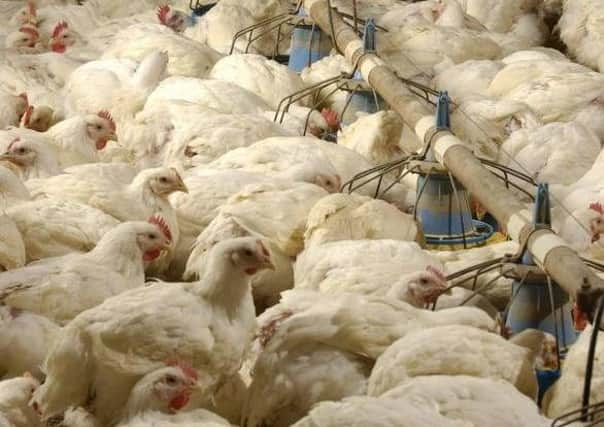RHI so big that it was affecting competition, senior Moy Park manager privately said


In a February 2016 email, as Moy Park’s head of NI agri projects, David Mark, was attempting to rally support for delaying the closure of RHI – despite knowing that it was over-budget – he emailed the company’s public relations advisers, Morrow Communications.
In his email, Mr Mark said that Moy Park’s farmers already had 600 boilers on the scheme, with RHI income of £14.4 million a year which he described as “safe”.
Advertisement
Hide AdAdvertisement
Hide AdHe set out how the company wanted to get another 600 boilers into the scheme – which by then had been made less lucrative – bringing in another £9.9 million a year.
Clearly linking RHI to the company’s expansion plans, he said that “of these, 100 are new-build projects with banking arrangements secured including the RHI total investment for NI by growers of £35m at risk”.
He said that because RHI was still open in GB that meant that “new farm development will be better funded in the GB area – and the remaining existing houses not yet fitted (anything up to 600) will be less competitive than the GB market – all encouraging the development of the business away from NI”.
Then, significantly, he revealed that RHI was in fact subsidising poultry to an extent that would be commercially seriously damaging if it was to stop. He said: “This [stopping the scheme] will have serious competitiveness implications for chicken meat production in NI.”
Advertisement
Hide AdAdvertisement
Hide AdFour months later and after the closure of RHI, Moy Park met the Northern Ireland Environment Agency and was quite open about how much it was benefiting the company.
Mr Mark was present at the June 2016 meeting along with fellow manager Keith Wilson.
The company had long faced difficulty getting rid of the huge quantities of environmentally damaging poultry litter – the waste left in houses after birds are taken to slaughter, which contains everything from faeces to birds which have died in the sheds.
According to the officials’ minutes of the meeting, the company said that it was involved in a study to analyse different categories of poultry manures and that “indications are that the use of biomass hot water heating is resulting in less feed being eaten by birds and lower quantities of litter being produced (190,000 down to 170,000 tpa, despite the expansion in bird numbers).”
Advertisement
Hide AdAdvertisement
Hide AdThe company representatives went on to say that “they were seeing considerable practical benefits of biomass heating including drier litter, etc”.
——— ———
A message from the Editor:
Thank you for reading this story on our website. While I have your attention, I also have an important request to make of you.
With the coronavirus lockdown having a major impact on many of our advertisers - and consequently the revenue we receive - we are more reliant than ever on you taking out a digital subscription.
Subscribe to newsletter.co.uk and enjoy unlimited access to the best Northern Ireland and UK news and information online and on our app. With a digital subscription, you can read more than 5 articles, see fewer ads, enjoy faster load times, and get access to exclusive newsletters and content. Visit https://www.newsletter.co.uk/subscriptions now to sign up.
Advertisement
Hide AdAdvertisement
Hide AdOur journalism costs money and we rely on advertising, print and digital revenues to help to support them. By supporting us, we are able to support you in providing trusted, fact-checked content for this website.
Alistair Bushe
Editor